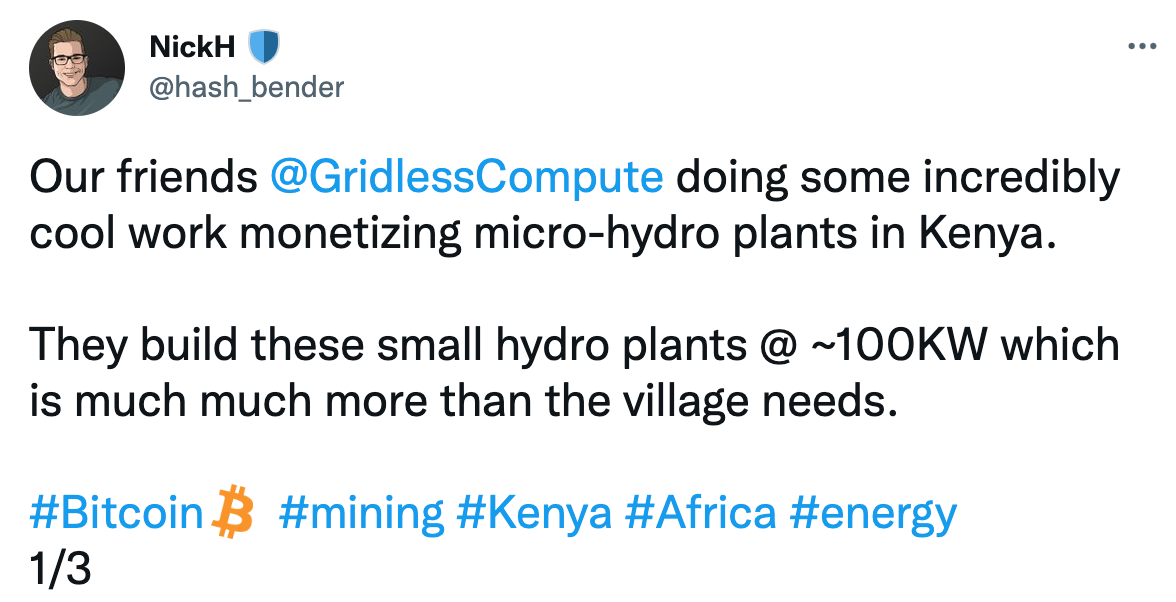
Gridless, a Kenyan company that mines bitcoin, has recently disclosed how it helps local communities to reduce their electricity bills by using the excess power generated for bitcoin mining. Gridless’ model is being praised because it could help to decentralize Bitcoin mining and also move some of the hashpower to Africa.
To mine Bitcoin, you can use waste energy
Gridless, an Kenyan crypto mining company has announced that the surplus electricity generated by mini-grid generators can now be used for bitcoin mining. Profits from Bitcoin Mining help to lower or subsidize electricity costs.
In a recently issued statement, Gridless said while mini-hydropower plants that generate below 100 KW (kilowatts) are being used so far, the company’s objective is to work with larger plants which can generate 500 KW. Gridless, a bitcoin mining firm said that:
We’ve been working with mini-grid hydro generators in Kenya on how to use their excess capacity for Bitcoin mining, which also significantly reduces the cost of power to the local community. We are small
According to one Twitter user known as Nick H, in Kenyan villages where the power plants are installed, the communities are only using an equivalent of 10% of the generators’ capacity. This means the power plants, which are being built to cater to the respective villages’ future electricity needs, are currently wasting much of the energy being produced.

Nick H posits that by “plugging in a few bitcoin miners to offtake the excess power,” the respective Kenyan villages can lower their power prices by as much as 90%.
Decentralizing Bitcoin Mining
Meanwhile, in addition to helping lower respective Kenyan communities’ electricity costs, it’s said that Gridless’ model — if widely adopted — could potentially see Kenya and the African continent, in general, become an important bitcoin mining hub.
“[This business model]This serves as an important decentralization for the numerous, centralized mega-sites that are currently mining bitcoin. Not only does it move some hashing power to Africa, but it also further distributes hashing to smaller sites,” Erik Hersman, a founder at Gridless, said in a blog post.
On Twitter, many users praised Gridless’ “absolutely incredible” business model and some like Anita from Guatemala asked how this could also be done in her country. In response, Gridless advised those interested in replicating this in their respective countries to find a “partner who likes to build small hydro and then work with them on the model so that it becomes a win/win/win for the power producer/community/miner.”
To receive a weekly update about African news, sign up here
Your thoughts? Comment below and let us know how you feel.
Images CreditsShutterstock. Pixabay. Wiki Commons
DisclaimerInformational: It does not constitute an offer, solicitation, or recommendation of products or services. Bitcoin.com doesn’t offer investment, tax or legal advice. This article does not contain any information, products, or advice that can be used to cause or alleged result in any kind of damage.